Disclosure: When you click on links to various merchants on this site and make a purchase, this can result in this site earning a commission. Affiliate programs and affiliations include, but are not limited to, the eBay Partner Network
Here you’ll find our Pre- House Sitter Checklist… it’s 24 things every home owner should do before to prepare your home.
These are things that will:
Prevent miscommunication.
Save time in the long run.
Reduce stress.
Make everyone’s experiences more enjoyable.

So how do I prepare my house for a house sitter?
Let’s get started:
1. Create a House Sitter Checklist Information Pack
It may sound simple… but it doesn’t always happen (so it has to be said)
The most important part of preparing for a house sitter is to have a detailed handover.
But… there’s a lot to include. You don’t want to forget to hand anything over.
And, you don’t want the house sitter to forget anything important!
So the first thing on your house sitter checklist is to create a House Sitter Information Pack.
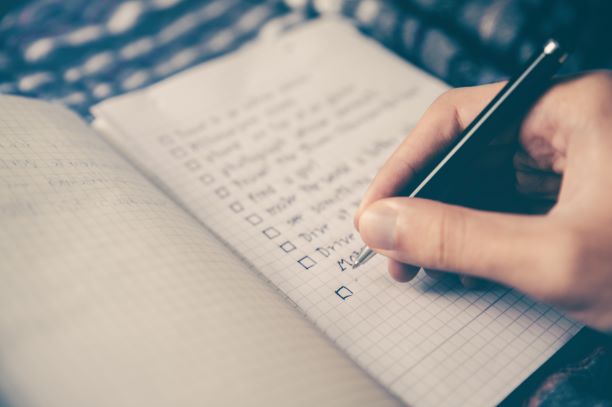
Ideally this is a folder where you keep your House Sitter Handover Form and include all of the information we’ll cover in this article.
You don’t need to get fancy. An A4 spiral bound folder, a manilla folder, or a binder with plastic pockets will do.
HINT:
If you plan on using a house sitter regularly (or you’re going away for more than a few weeks) it’s worth doing it properly. A little effort here will make the house sitter realise you really care for you home, and they’ll repay the favour in kind.
So go ahead, find a folder to use for your ‘House Sitter Information Pack’.
What will we include in it?
2. Create a House Sitter Checklist of Household Jobs that Need to be Done
Now you’ve got a folder, it’s time for step 2 of your house sitter checklist… create a list of the jobs that need to be done to keep your house running how you like it.
It’s not until you’re preparing for a house sitter that you realise how much you do around your own home.
So, your life will be easier if you start writing everything down now. You can keep adding to your list as you go.
This is way better than trying to list everything right before you leave. Not only is that stressful, you’re guaranteed to forget things!
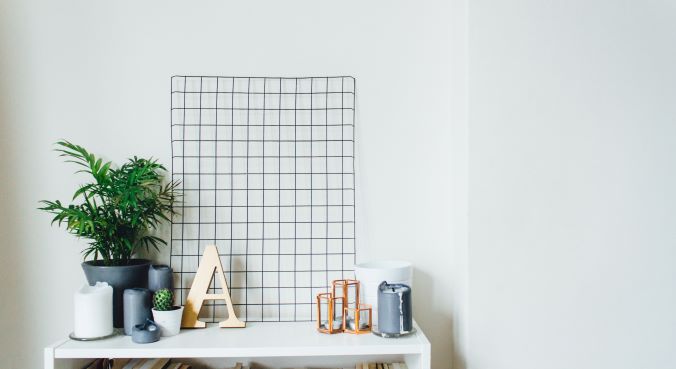
A good way to think about it is to group the things that need to be done into daily, weekly, fortnightly, and monthly jobs. Things like:
- Which bins go out on which days
- Recycling
- Mail collection
- Watering indoor plants
- Cleaning (make sure you include things like where you keep your cleaning products)
HINT: Stock up on cleaning products
People have different ideas about cleaning products!
Some people like to avoid chemicals while others love using the strongest anti-bacterial products available.
If you have a preference then make sure you’re stocked up on the things the house sitter will need for the time you’re away…
…dishwashing liquid, floor cleaner, dishwashing tablets, cloths, garbage bags, etc.
This one’s important, so make a start now. Keep adding to your House Sitter Handover Form. Keep it in your House Sitter Information Pack. Don’t leave it to the last minute!
3. Create a House Sitter Checklist of Gardening and Outdoor Jobs that need to be Done
So you’ve made a start in listing what needs to be done inside?
Good.
What about outside?
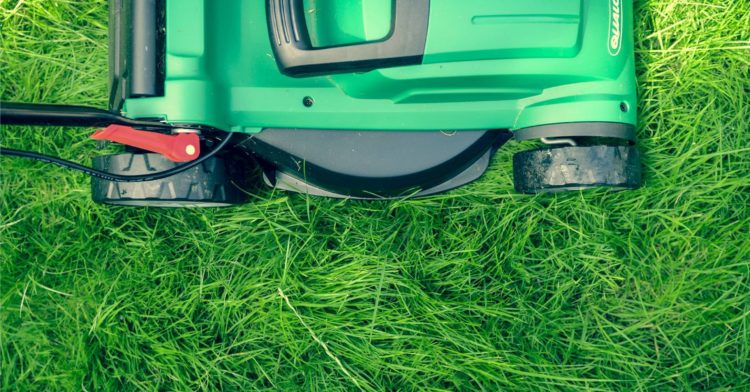
Step 3 of your house sitter checklist is to create a list of jobs that need to be done to keep your outdoor area just how you like it.
Like your indoor list, your life will be easier if you start writing everything down now.
Think about the daily, weekly, fortnightly, and monthly jobs.
Things like cleaning up after animals, watering plants, and pool maintenance.
Some specific things that you might need to go into more detail about include:
- Compost. What can and can’t go into it?
- Weeds. Are chemicals acceptable? Or do they need to be pulled?
- Pool Maintenance. Which chemicals? When? How much?
- Herbs and Veggie Gardens. Will things need pruning, picking, or fertilising?
- Lawn Care. How do you use the mower? Spare fuel? Whipper-snipper?
HINT: Make sure gardening tools and chemicals are accessible
Make sure your mower, whipper-snipper, rake, etc are all left out for the house sitter.
Make sure there’s a supply of the needed chemicals for the time you’re away.
And, like cleaning products, people have different ideas about outdoor chemicals.
Some people prefer the 100% organic route, while others don’t mind nuking weeds with Round-Up. Make sure your preferences are known!
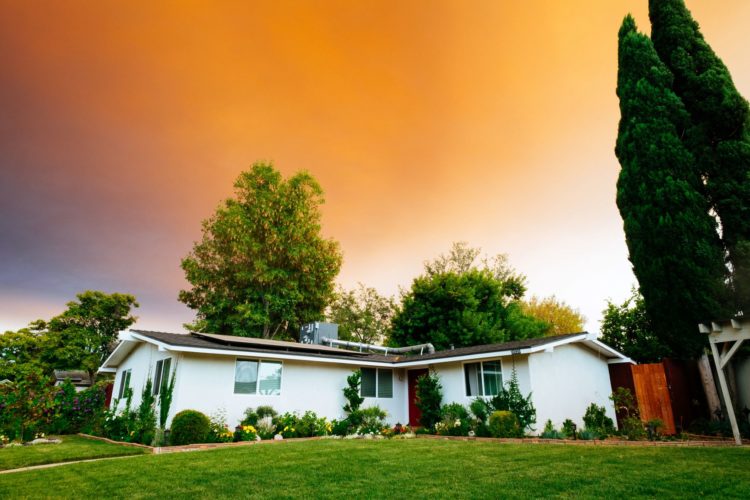
Oh, and make sure you make a note of the little jobs that have been on your ‘to-do’ list for a while. Loose pavers. Wonky chairs. Broken swings.
You need to make sure your house sitter is completely aware of all these things to prevent mishaps. Even better… now might be a good time to fix them?
So step 3 of your house sitter checklist is to start adding your outdoor jobs to your House Sitter Handover Form. If you have instruction manuals for things like your sprinkler system, pop those in your House Sitter Information Pack too.
4. Plan for Your Pet Care Needs… Both the Expected and Unexpected
Are you the sort of person that would pay for your dog to have emergency surgery?
I am.
What about your house sitter?
No, not whether you’d pay for the house sitter to have emergency surgery… but would your house sitter make the same decision that you would for your pet?
What if they can’t get in contact with you?
You might come home to an empty house and a “sorry, but it was just a cat”.
Or, you might come home to a budgie that’s happy and healthy after having a $2,500 surgery.
You might be fine with both of those outcomes.
Maybe not.
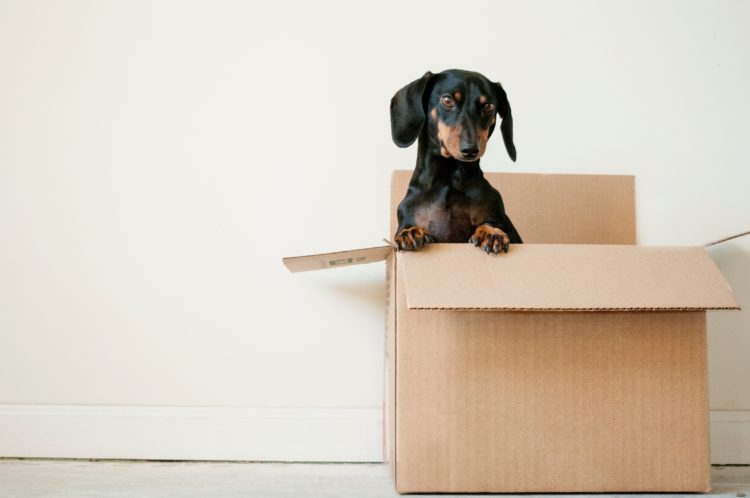
A good handover isn’t just about what day the bins go out or whether or not they can use the tomato sauce. You should make sure that the house sitter knows exactly what you would do if something bad happens.
So step 4 of your house sitter checklist is to grab out your House Sitter Handover Form, and start jotting down your pet care details.
Now, some of these things are quite factual, but… it’s time to make some tough decisions.
That’s why we’re doing this early. You may need to think about it, and talk it over with your family.
Either way, it’s better to start now, rather than having to make some tough decisions while you’re away (or come home to some mistakes that were made).
Pet sitter checklist: Things that you need to consider:
- Pet food. When, how much, what type? Where is it? Is there enough for them already? If not, what type, where to buy it from, and how is this paid for?
- Vaccinations. Are the animals up to date? The answer to this should be ‘yes’ before you leave.
- Pet medication. Do any of your pets have medical conditions and require medications? If so… what, when, how much and a resupply plan.
- Behaviours to be aware of. Does the cat try to run away? Is the dog fine to take off the lead? Scared of thunderstorms? How does the dog go around cats? How’s the dog around other dogs? Any particular types of dogs? Even though we have a white fluffy dog, our Border Terrier couldn’t stand other white fluffy dogs. Go figure?!
- Pet areas and no-go zones. Where are the pets allowed… outside, inside, on the couch, in the bed(?). What if you go out? Will you come home to a couch that’s destroyed?
- Dog walking. How often and how far? Where? What if it’s hot? Cold? Raining? Do they need a little jacket? Where’s the lead? Oh, and make sure there’s plenty of bags!
- Poop policy. Make sure there’s plenty of kitty litter and some disposal instructions. Same with cleaning up after the dog and/or other animals.
Your Pet Care Emergency Plans
This is where you need to think ahead. Only you know what to do if your pet gets sick, ill or injured.
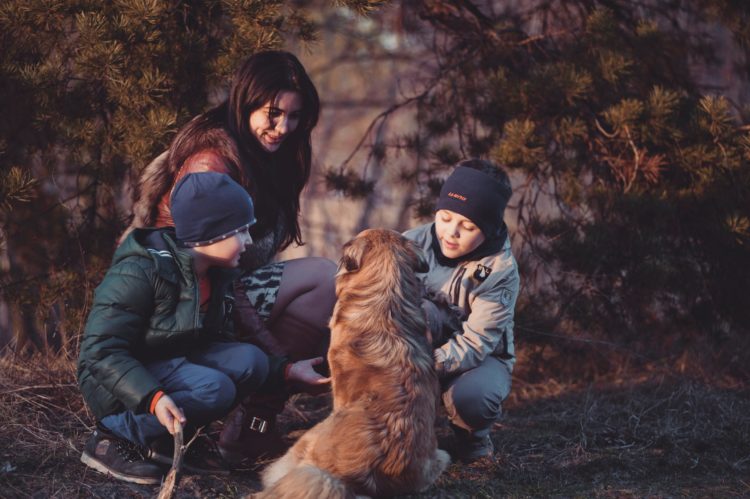
It’s important that this is done before you leave in case something happens and the house sitter can’t get in contact with you. Some things to consider:
- Vet details. Make sure you write down the vet’s name, number, and address. If it’s not an after-hours clinic, include one of those too
- What happens if something goes wrong? Here is where you should provide some clear guidance… what if the dog gets sick? The cat? The goldfish? Which ones go to the vet? What happens if they need surgery? Is there a limit? And the worst-case scenario… something really bad happens and the pet needs to be put down. Many vets have a pet euthanasia form that must be completed for this to happen. You may want to consider either pre-authorising this (with some clear guidelines) or authorising your emergency contact.
- How would vet bills be paid for? If you don’t have an existing relationship with your vet, here is where it is worth contacting them to organise an account ahead of time. You would hate to find out that emergency vet care didn’t happen because the house sitter was unable to pay for the emergency treatment you would have gladly paid for.
Wow, that was a mood killer.
But hey… better to think about the worst case scenario now, and know that your beloved pets will get looked after with exactly the same love and care that you’d provide.
5. Identify the Out-of-Bounds Areas
This step of the house sitter checklist is an easy one… it’s just making a decision
A common step in preparing for a house sitter is to set aside an area that’s out-of-bounds.
Not all home owners choose to do this, and that’s fine.
But… there are some benefits of doing this.
A few of them include:
- You can be 100% sure that parts of your home will be exactly like when you left them
- It’s storage for your valuables
- It’s storage for breakables, and
- Also storage for when you clear space for the house sitter
So how much do you need?
That’s entirely up to you. It could be a cupboard, a shed, or even more than one room. Some home owners even close off most of their house… leaving only one room, the kitchen, and the bathroom.
And you know what?
There’s nothing wrong with any of those. As long as it’s clear up front.
Same with security. You might be comfortable just saying “that’s out of bounds.” Or you could keep the area under lock-and-key.
No answer is wrong.
But… unless your plan is to leave your home exactly like it is now (not recommended for lots of reasons), it’s worth identifying where your out-of-bounds areas are early.
That way when you move your valuables and clear space for the house sitter’s things over the coming days, you’ll already know where they’re going
6. Detail Your Car Use and/or Maintenance Expectations
Are you letting your house sitter drive your car?
If the answer to this question is ‘yes’, then there’s a few things to think about when you’re preparing for a house sitter.
The first of these is ‘reasonable use‘.
It’s worth clarifying up-front if you have any expectations about how far they can drive.
Are you letting them have use of it to do the grocery shopping and see the local sites…
…or are long day trips quite okay?
And, depending on where you live, are dirt roads off-limits?
A good rule that everyone should live by is ‘leave everyone and everything better than you found it’. But not everyone does. So when it comes to your car there’s two things to consider:
- Fuel. If you’re expecting to have the same amount of fuel in your car when you return, the best option is to leave it with a full tank. This way there can be no awkwardness about how much was in there.
- Car Washing. Are you planning on washing your car immediately before you leave… and expect it to be the same on return? If that’s the case, is an automatic car wash okay?
So that’s the planned-use side of things.
What happens if there’s an accident or breakdown?
The unfortunate thing about cars is that they break down. If something does happen (even something as simple as needing a flat tyre repaired), it needs to be clear who pays for this.
Now, this is all assuming that the house sitter is a great driver. What if they’re not?
You’d better check your insurance policy. Find out whether or not you’d be covered in the event of a minor mishap.
If you’re not letting your house sitter drive your car, are you expecting them to maintain it?
Depending on how long you’re going for, you might ask them to start your car every week or so to let it run for a bit. How long? You don’t want to come back to a car that’s been religiously started every week, turned off immediately, and the battery has then gone dead flat.
These are just a few more things to jot down in your House Sitter Information Pack
7. Confirm Your Insurance Policy Details
Smart move using a house sitter!
I’m not sure how long you’re heading away for, but the good news is that if you’re going away for an extending period you’re avoiding your house being classified as ‘Unoccupied’.
Many don’t know that this can either increase your excess or void your policy altogether!
Read: 3 Ways to Stop Voiding Your Home Insurance While Travelling
But do you have to worry about anything?
Well, maybe.
Does your policy cover accidental damage? What about for guests?
Are you paying your house sitter? Is your house sitter paying you? It’s worth checking with your insurer to check whether this (potentially) commercial arrangement changes things.
I was one of those shocked property owners who found out some interesting things when I actually took the time to read my Product Disclosure Statement…
So that’s step 7 of the house sitter checklist… when you’re preparing for a house sitter, grab a cup of coffee and check your PDS. You never know what you’ll find!
8. List Your Security System Details (Even If You Don’t Have an Alarm)
Even if you don’t have an alarm, you have a security system.
What does that even mean?
Well, your system is how you approach security for your home on a day-to-day basis. You know your neighborhood and it’s risks.
If you expect that both the door AND the screen doors are locked when leaving the house, make a note of it. If you expect that windows should be key locked, make a note of it.
Do the gates need to be closed whenever the house is left empty (even to go to the supermarket? Overnight?
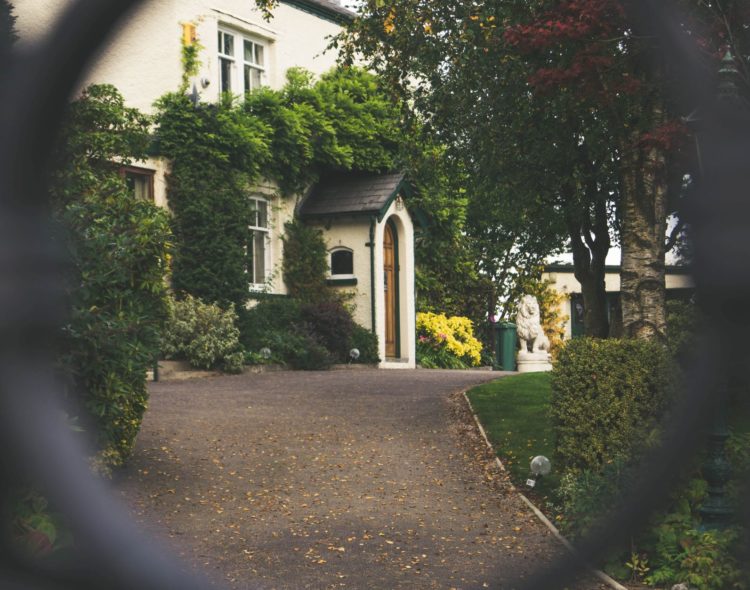
If you do have an alarm system, please don’t forget to leave the instructions! You may also want to consider getting a unique code for your house sitter (one that you can delete out of the system later)
When preparing for a house sitter, pop these things into your House Sitter Information Pack. This way your usual security precautions should continue as normal.
What we’re trying to avoid here is something bad happening because the house sitter wasn’t clear about the steps that should be taken.
Sure there’s insurance, but some things can’t be replaced…
This way we shouldn’t have to worry about it!
9. List Your Power, Gas, and Water Supplier and Connection Details
You should consider letting your house sitter know the utility companies that supply your home just in case something goes while you’re away.
Even if you choose not to do this, there are a few things that you should step through. Some things to consider are:
- Power. Location of the fuse box, spare fuses, and any safety switches
- Water. The mains tap, and access areas to drains if your home is prone to blockages
- Gas. If you also have a gas supply, how to light any pilot lights. If you’re on bottles, how to swap them over (and maybe even how to go about resupply)
- Solar. If you have solar, are there any special requirements?
This is a good time to also make some notes about your expectations for reasonable use.
This might also include a request to run things like dishwashers, washing machines, etc at night time (depending on whether your supply has a different charge rate for peak vs. off-peak)
An added bonus?
If you’re from South Australia, maybe show your house sitter where the candles are!
[We’re from SA, so we’re allowed to make that joke!]
10. Create an Emergency Contact List
There should be two parts to your emergency contact list:
- How to contact you?
- Other people to contact?
It’s pretty self-explanatory that you should leave at least two ways to contact you – usually your mobile number, email, or something like Messenger. You should also note the best way to contact you… and this might be different on each leg of your trip.
What if you can’t be contacted?
You should give the house sitter at least one emergency contact – a family member, a close friend, or even a neighbour.
Make a note in your House Sitter Information Pack the reason they should be contacted… in case a decision needs to be made about pets? Maintenance? A spare key? It might even just be a question about how to look after your home
Oh, and don’t forget to check with them that it’s okay if you list them,
Hopefully they shouldn’t need to be contacted… but better safe than sorry,
11: Identify What Events or Mail You Want to Be Notified About
Do you want to regular updates about your home and pets?
How often?
If it’d put your mind at ease to get a “hi, everything is okay here, hope you’re have a great trip” message every few days… let your house sitter know.
If you want a regular photo of your pets, that’s cute. Let your house sitter know.
If you don’t, that’s fine too.
But, if there’s anything you do want to be notified about, be sure to include this in your House Sitter Information Pack.
Some things that you might want to know about are any parcels that have arrived or mail from specific senders.
A word of caution though… it’s fine to want to be notified about things like when the dog has had a haircut.
But there’s a line.
Asking for things like a photo of the lawn every time it’s been mowed, or evidence that the dog has actually been walked every day (real examples!) can get weird pretty quickly
12: Notify Your Neighbours of Your Plans
If you’re friendly with your neighbours, it’s worth letting them know that you’re using a house sitter
If you’re not friendly with your neighbours?
It’s still worth letting them know!
Even though you may not have been chatty with them, they’re probably still lovely people… who would call the police if they thought some strangers were hanging around your home
Depending on how well you know your neighbours, they may also be a good choice for emergency contact and having a spare set of keys…
13: Confirm Your Itinerary Dates AND Times
Have you read about the worst house sitting experience we’ve ever had?
If you didn’t, the biggest issue was miscommunication about when we’d be back. We let our house sitter know the DATE, but not the TIME.
We weren’t getting home until late in the evening.
This meant our dog was outside on a hot day, wondering where everyone was, and where his food was. The whole neighbourhood heard about it. Our next door neighbour ended up climbing our fence to feed little Hudson.
This was entirely our fault for not being clear about what time we’d be getting home.
Thinking about it… we didn’t let her know our itinerary and where we could be contactable too. Sure we had our mobile phones, but they didn’t always work well.
We were lucky there was no emergencies.
So if you’re travelling, it pays to be clear. Where will you be at different stages of your journey, what date will you be getting home, and about what time. Pop this in your house sitter information pack.
(Jo, if you’re reading this, we’ve learned our lesson!)
14: Make Space for the House Sitter’s Personal Belongings
If you’ve ever stayed in a hotel you know that living out of suitcase is pretty easy.
But, it makes cleaning harder… because there’s stuff everywhere.
If you empty out some cupboard or drawer space while preparing for a house sitter, it’s a win-win. You’ll make the house sitter feel more at home, and it will make it easy for them to keep on top of cleaning.
And, to be honest, this is the single biggest thing that homeowners have done for us that made us feel more welcome.
Depending on how long you’re going away for, you should also consider:
- Pantry space
- Hanging space in the wardrobe
- Bedside cupboard space
- A drawer in the bathroom, and
- Space in the fridge
If you can, a quick fridge clean out is even better… now’s the time to get rid of anything that’s past its best-before date (or the jars that are 1/8 full!)

Where should you put the stuff you’re taking out of these spots?
There’s at least 3 options:
- If you’re not taking it with you,
- The out-of-bounds area you’ve already decided upon, or
- Use it as an opportunity to declutter!
Even if you’re going away for a weekend, a little cupboard space goes a long way in making a house sitter feel comfortable
15: Store Your Valuables and Breakables
Putting things away isn’t just about trust. It’s about accidents too.
You would like to think it’s a pretty rare situation where you’d invite someone into your home, and then they’d steal from you.
What’s more likely to happen?
People are in a new environment. Cupboards will get bumped on the way to the bathroom in the middle of the night. That vase that your great aunt gave you will get knocked over. The wine glasses you got as a wedding present might get dropped. That cute meerkat statue might get pulled over by the hose while watering the plants (what’s the bet Aldi never has those again!)
Accidents happen. And they could just as easily have happened to you. But… you don’t want to need to have an awkward conversation.
Especially if it’s something that’s hard to replace.
The best option is remove the risk. If you don’t want it broken or, um, missing… put it away.
What do house sitters think if you do this?
Awesome.
Less things to worry about, and it makes it easier to keep tidy
Whether you put things under lock-and-key or just in your ‘out-of-bounds’ area, that’s your call
16: Create an Inventory of Your Non-Secure Valuables
You must be like us – we believe there’s good in everyone. Otherwise, we wouldn’t trust strangers enough to look after our homes.
But… there are stories of things going missing. And, some of these haven’t been noticed until weeks later.
Once you’ve put away the valuables you’re storing, jot down a list of whatever’s left around the house.
Leave the list with someone, take it with you, or store it digitally.
This way you’ll know sooner rather than later if something was accidentally broken (and the house sitter forgets to mention it)
17: Set Aside the Towels and Bedding that Can be Used

Don’t like the idea of other people using your bedding or towels?
If that’s the case you should do one of two things. Either set aside the towels and bedding that the house sitter can use, or let them know they need to bring their own.
In most cases that would be fine, as a lot of house sitters prefer to bring their own linen anyway.
But if they don’t?
It would be a bit of an inconvenience to only find out once they arrived
So let them know sooner rather than later.
18: Cancel or Suspend Subscription Services
It’s more than likely you’ll leave things like internet and Netflix for your house sitter.
Or maybe not.
Either way, make a list of the services that you’re planning on suspending (or cancelling). Some of these may include:
- Newspapers
- Magazines
- Pay TV
- DVD rental
- Cleaners
- Gardeners
Some of these might have a notice period, so if you’re planning on doing this, better get onto it sooner rather than later.
If you have a cleaner or gardener and you aren’t suspending these services… let them know a house sitter will be there. Be sure to detail in your House Sitter Information Pack who comes, when they come, and what it is they exactly do.
Oh, and be sure to mention whether or not they have a key. I’m sure you could imagine some awkward situations that could arise if either party didn’t expect to see someone else…
19: List Your Internet Details and Passwords
If you choose not to provide internet etc for your house sitter, that’s perfectly fine…
…these days most people have plenty of data on their phones anyway!
To be honest, it’s not an expectation. But it is a nice gesture though.
A big risk is data usage.
Do you have unlimited internet? If not, how much data is there? Is there a way of knowing how much has been used? What are your expectations if they go over the limit?
So if you are letting your house sitter use the internet and Netflix, don’t forget to make a note of these details in your House Sitter Information Pack.
Last thing anyone wants is an excess data bill because the house sitter thought that it was okay to stream hours of funny cat videos on YouTube.
Also…
Depending on how long you’re away, the odds are it’ll drop out at some point.
So consider leaving behind the wi-fi password (and maybe Netflix too).
Again, it’s not a necessity, but it is a nice gesture. Especially if there’s no usage costs anyway!
20: Organise Spare Sets of Keys
Most people have more than one set of keys for their home. Both partners have a set. There’s some with a friend. With a neighbour. There might be a hiding spot.
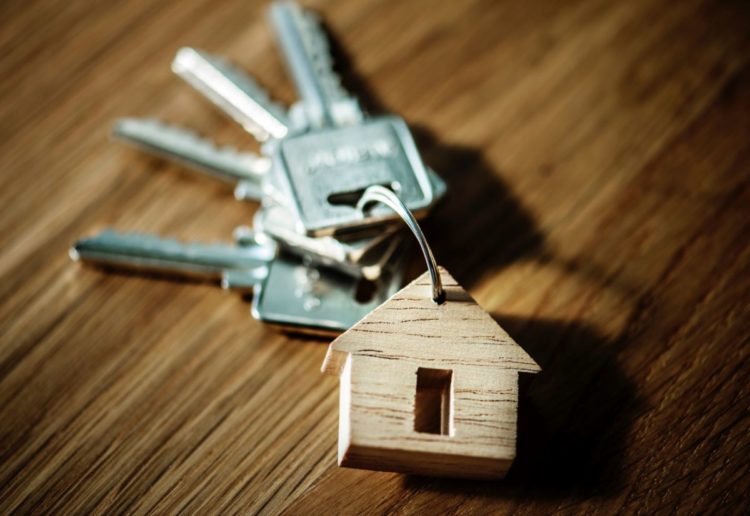
What happens if you only leave one set of keys for your house sitter?
To start with it can be pretty inconvenient. You can’t go to get milk because your partner is walking the dog.
Also, there’s a good chance that at some point the keys will get locked inside. We’ve all done it.
So leave at least two sets of keys with your house sitter. Or let them know a good hiding spot.
It’s thoughtful because of the convenience…
…and it reduces the risk of your house sitter needing to call a locksmith.
21: Identify the Food and Drink that Can or Can’t Be Used
Is your house sitter allowed to eat anything they find in the fridge? Pantry?
What about the freezer?
Can they use the condiments only?
Cling wrap?
If there’s beers in the fridge are they out of bounds? What about the wine rack?
There’s no wrong answer.
The only wrong answer is the one you don’t give.
Like everything else, make a not of this in your House Sitter Information Pack
22: Create a Quick Guide to Your Local Area
Everything else on this house sitter checklist is to avoid any possibility of miscommunication.
This is one is a ‘nice to do’
We have very fond memories of having a drink with some home owners as they told us all about the playgrounds in the area, which markets to go to, etc
It makes a difference
Here are some ideas to help your house sitters feel welcome:
- Closest supermarket
- Cafes with good coffee
- Medical facilities (GPs, after-hours clinics, and hospitals)
- Vet clinics
- Tourist attractions
- Pubic transport
- Library
- Cinema
- Dog park
- Dentist
Now, we’ve put this towards the end of the house sitter checklist because you may not get a chance to do it.
That’s okay.
Most people can easily find this information online anyway. But, if you show you’re putting in effort to prepare for a house sitter, they’ll put in more effort in looking after your home.
It’s good house sitting karma.
23: Create a Listing on a non-Facebook House Sitter Website
We’ve had some great luck in using Facebook groups for house sitting.
But we’ve also had some first-hand experiences that haven’t been so great.
And, we’ve seen quite a few conversations in groups where things have gone, well, pear shaped. Very.
That’s why Family Friendly House Sitters exists. There’s 4 big reasons why the site was created. To prevent:
a) Arriving to Find a Big Mismatch in Expectations vs. Reality
The information that gets posted about both the house sitter and the home itself can vary quite a lot. Unless there’s a lot of messages back and forth, the house sitter can turn up to find a home that is not what they expected (and vice-versa).
No one is wrong in how they want their home and pets looked after. No one is wrong in how they look after a home. The only thing that is wrong is when there’s a mismatch because of miscommunication.
We’ve heard of house sitters turn around and leave the moment they saw a house. House sitters leave half way through a sit. Arguments upon the home owners’ return because things weren’t looked after in the way they expected.
That’s why on Family Friendly House Sitters there’s home listing pages and house sitter profile pages that include all of the key information to help create a perfect match.
b) Unclear Expectations About What’s Required
This is step 23 of the house sitter checklist. Some things are about communication, others are about preparation.
How did we get to 23 steps?
Because these were things that made it easier to look after someone else’s home, and improved how our home has been looked after.
By joining a good house sitting website, you’re provided with the tools for preparing for a house sitter as well as a House Sitter Information Pack.
c) No Recourse When Something Goes Wrong
A few short messages back and forth on Messenger.
A face-to-face meeting.
Then, unfortunately, an accident happens and it’s unclear who is responsible.
If the house sitter just gets up and leaves, your options are limited.
How can you prevent this?
If before the house sit you (or the house sitter) pulls out a contract… you could imagine the reaction!
But if you join a house sitting website like Family Friendly House Sitters, both parties agree to Terms and Conditions at registration.
There’s already a contract in place before the house sit.
The house sitter has already agreed to look after your home in accordance with your handover. They’ve already agreed to pay for breakages.
If something goes wrong and there’s more formal proceedings required, there’s something to point back to.
Summary: The House Sitter Checklist to Prepare Your Home
We created Family Friendly House Sitters for a couple of reasons.
Firstly, to create a match between home owners and travelling families
Read: How To House Sit Your Way Around Australia (Or World!) With Kids
The other?
To share what we’ve learned through trial and error.
[These are the 24 things we’ve found that create the most stress free house sit experience… this house sitter checklist has also been built through trial and error]
It’s worth starting now.
If you’re going on holiday and want someone to look after your home and pets for free, then the 2 house sitting websites we recommend are:
and



![What Caravan Tyre Pressure Should I Use? [A Simple Explanation]](https://abigpeacheyadventure.com.au/wp-content/uploads/2019/09/What-Caravan-Tyre-Pressure-Should-I-Use-440x264.jpg)

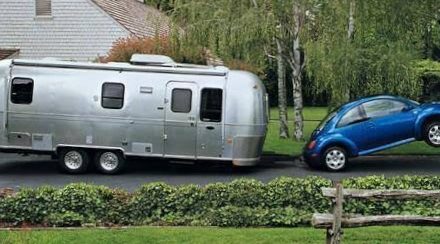
![How To Clean Mould Off Your Caravan Awning [Step By Step]](https://abigpeacheyadventure.com.au/wp-content/uploads/2019/09/How-To-Clean-Mould-Off-Your-Caravan-Awning-440x264.png)
What should I put in place for next time?
I had a lovely house sitter, an older lady with grown up kids in the area, did a great job looking after our pets and the house was spotless.
BUT…
I left my car with her even tho she had her own car, I said she was welcome to use it if she needed. Had it serviced and new tyres just a week before we went away too.
Guess what… 5000km in a month on my 2 yo car… I don’t even know what to say. I asked her what happened, and apparently it all sounded bizarre. So… I just don’t know.
Wow, sorry to hear Rose… just the simple mathematics on that blow my mind. Since you ask what should you put in place for next time… I’d recommend outlining what is considered reasonable mileage for the time you’re away [the amount will depend on lots of things like where you live, if they have a car, etc]. Also, dirt roads yay or nay… and if you’re in the top end then any restrictions like time of day (like insurance companies do)